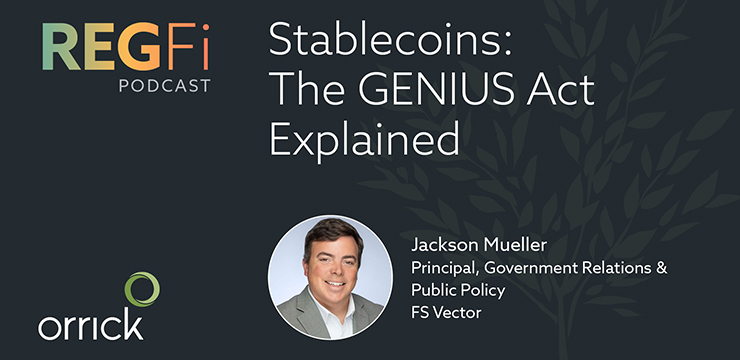SECTOR INSIGHTS
Technology & Innovation

The Download: How Defense Tech Is Evolving & Why Renewable Energy Is Booming in Texas
24 minute read | April.15.2025
Life Sciences & HealthTech
.jpg)
How Shifting Trade Dynamics Are Reshaping U.S. Healthcare | Life Sciences Snapshot – Q2 2025
11 minute read | May.12.2025
The Latest
Client Result
Landmark Appellate Win Paves the Way for NextDecade’s $18.4 Billion Rio Grande Liquefied Natural Gas Project
2 minute read | March.19.2025

News
Orrick Grows E&I Finance Platform in New York
2 minute read | July.08.2025

News
Orrick Adds European Competition Advisor in Paris
2 minute read | July.07.2025

News
Orrick Adds Public Finance Partner in Los Angeles
3 minute read | July.02.2025

News
Former FTC General Counsel Anisha Dasgupta Joins Orrick’s Supreme Court & Appellate Practice
2 minute read | July.01.2025

Insight
How Major Corporations Are Evolving Their Approach to DEI Disclosures
by Mike Delikat, Hayden Goudy, Tierra D. Piens and Meghan Conway
9 minute read | June.13.2025

News
Orrick Expands in Italy with Energy & Infrastructure Finance Team
2 minute read | May.27.2025

Client Result
Regeneron Secures $407M Jury Verdict in Major Antitrust Win that Earns American Lawyer Litigators of the Week Top Honors
2 minute read | May.16.2025

This verdict will ensure that patients continue to have access to Regeneron’s lifesaving, cholesterol-reducing drug Praluent.
News
Orrick Adds M&A Advisor in Paris
1 minute read | May.27.2025

News
Orrick Adds Comp & Benefits Partner in London
2 minute read | May.19.2025

Client Result
Orrick Pro Bono: Restoring Dignity for a Purple Heart Veteran
2 minute read | April.07.2025

Insight
Trump Administration’s Sweeping Reciprocal Tariffs – What Companies Need to Know
by Harry Clark, Jeanine P. McGuinness, Elizabeth Zane, Maria Sergeyeva, Gregory I. Hume and Allison Lofgren Bradham
5 minute read | April.04.2025

Client Result
Orrick’s Appellate Team Produces Another Major Win for the LNG and Natural Gas Industries
1 minute read | April.01.2025

Client Result
Anthropic Raises $3.5 Billion to Advance AI Development and Expand Compute Capacity
1 minute read | March.03.2025


.jpg)



